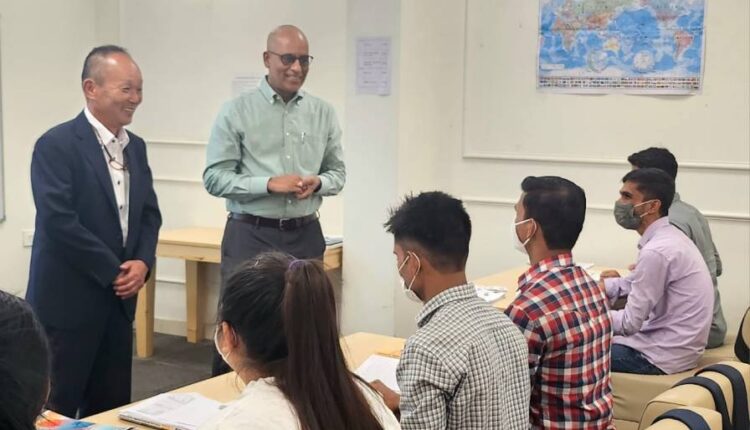India emerging as a preferred destination for Japanese recruiters
Recently India witnessed a surge in the influx of recruiters from Japan in the care-giving (介護), nursing, agriculture, hospitality, construction, and food processing sectors.
NEW DELHI/TOKYO: The maiden visit of Koichiro Morimoto, Executive Director, Life Support Organization for Global Human Resources, Japan to the Aju Nihon Edutech Centre near New Delhi recently was a pleasant experience as he returned to Japan with a plethora of hopes and promises as well. Running care-giving homes in Japan, Koichiro Morimoto visited India looking for skilled caregiving and nursing workers. He opined that India can easily churn out up to 20,000 caregiving/nursing professionals annually for employment opportunities in Japan as skilled workers.
Impressed by the quality of manpower, the Life Support Organization for Global Human Resources made the on-the-spot selection of caregiving (介護) workers at Aju Nihon Edutech Centre. Previously, another Japanese organization Tsuruta Co. Limited led by its President and CEO Riyuji Tsuruta also visited this centre to source skilled manpower in the field of construction and agriculture.
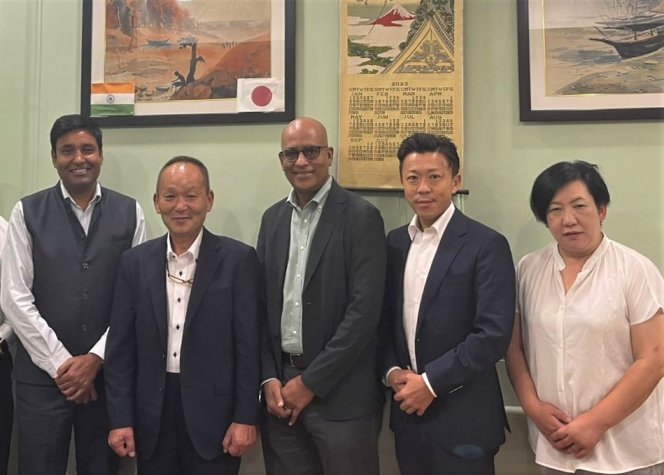
Earlier in May this year, a delegation of Yoshikawa Logistics Group company Green Food Service Co. Ltd. Led by Kazuo Shimahara visited this facility in Gurugram to interview over two dozen potential candidates for its food processing facilities as well as for the hospitality or housekeeping sector.
The commonality between the two Japanese organization visiting India was that they not only looked for skilled manpower from India for their own organizations but also aimed at sourcing for other organizations across Japan. Life Support Organization for Global Human Resources also has plans to source Indian skilled manpower for Japan as well as Australia.
Aju Nihon Edutech Centre based in Gurugram on the outskirts of New Delhi imparts training to local youths on the Japanese language and culture in the fields of hospitality, nursing, caregiving, agriculture, IT, and construction.
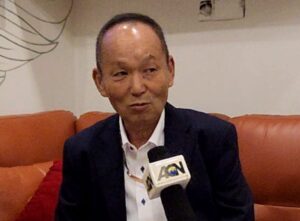
According to industry experts, Japan currently faces a shortage of 300,000 in the caregiving sector alone, and it is likely to grow to 500,000-600,000 in the next few years. Of this, the foreigner numbers are 60,000-80,000, which is around 20-30%. And India could send around 20,000 of this demand given its nursing prowess and also the population in this space.
However, currently, a majority of the manpower demand-supply gap in Japan is addressed by Indonesia, Vietnam, and the Philippines as these nations have a long tenure of relationship between sending and receiving organizations.
“But of late, India has emerged as a favorite destination for manpower sourcing for Japanese corporates in various sectors,” said Koichiro Morimoto in an interview with Asian Community News (ACN) Network.
However, as regards the training element, Koichiro Morimoto offered a few critical points of view. He said that those coming to Japan as SSW found it difficult to adapt as they relied more on study and faced difficulty when handling the equipment like beds and other care-giving apparatus.
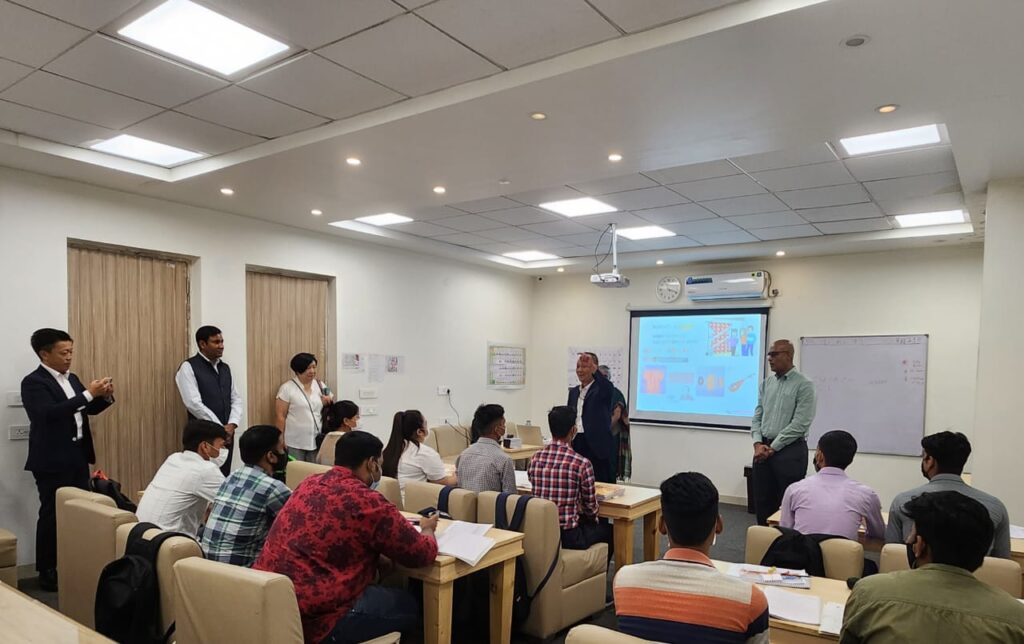 “Therefore these workers cannot be termed as qualified workers and the companies receiving them in Japan are not able to utilize them properly for the want of practical training to these workers. Spoken languages and knowledge of Japanese should not be created as a hurdle as hands-on training is more crucial for this field of work in Japan. The communication gap can be filled with AI tools but skills and hands-on training hols the key to success in Japan,” Koichiro Morimoto added.
“Therefore these workers cannot be termed as qualified workers and the companies receiving them in Japan are not able to utilize them properly for the want of practical training to these workers. Spoken languages and knowledge of Japanese should not be created as a hurdle as hands-on training is more crucial for this field of work in Japan. The communication gap can be filled with AI tools but skills and hands-on training hols the key to success in Japan,” Koichiro Morimoto added.
In a more candid gesture, Koichiro Morimoto said, “The caregiving workers could be trained on 5-6 of the total 20 tasks in India, and it will attract employer’s interest in Japan and rest of the tasks can be learned by the workers in Japan while working there. Therefore, language proficiency is not so important but knowledge of tasks, handling of the hardware, equipment, and other apparatus are of more importance. These workers should know skills such as changing a diaper, taking elderlies for bathing, cleaning their hands etc and these tasks don’t require much talking but soft handling and skilfully completion of the job.”
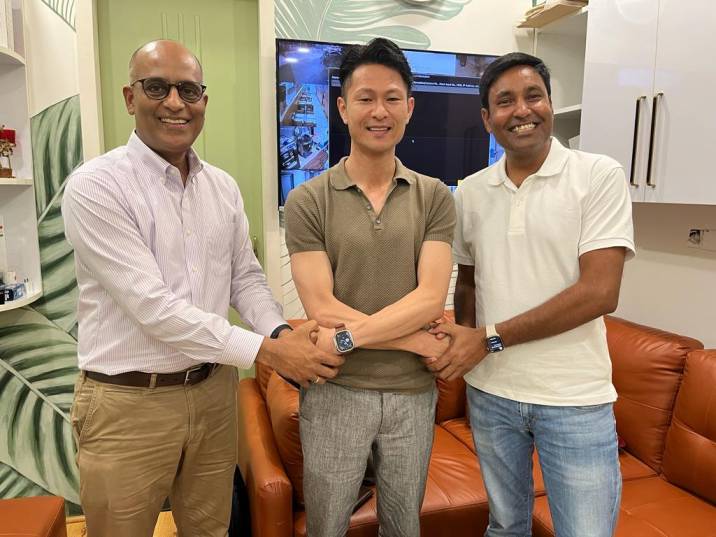
While talking about the long-term future prospects of the caregiving workers heading to Japan, Koichiro Morimoto is of the view that such workers can work at better pay packages and remunerations across the world.
“We plan to source up to twenty thousand workers from India annually as we plan to place them not only in Japan but also in Australia where they can get better emoluments, almost double of what Japan offers. But before going there, they must prove their worth in Japan, and learn the nuances of work. We are not in a hurry and don’t want to let the youth face the problem of not fitting their job requirements. Matchmaking and high quality are very important in Japan.”
Related article: More Japanese firms reach India to source manpower for hospitality, caregiving, food Processing, and restaurant services
Krishnan Narayan and Prakash Yadav who are jointly leading the initiative at Aju Nihon Edutech Centre, said that besides basic proficiency in the Japanese language and culture, special stress would be laid at imparting training on the basic skill sets to the youth.
“For this, the Life Support Organization for Global Human Resources had agreed to provide entire paraphernalia including the special beds, wheelchairs, and other related elderly care and nursing equipment required for the care-giving job roles. All these equipment are used in Japan in this sector at the caregiving homes, shelters, and homes,” they added.
Nihon Edutech, a sending organization for Specified Skill Workers (SSW) & Technical Intern Training Program (TITP) in collaboration with the Confederation of Indian Industry (CII) offers Japanese language, cultural etiquette, technical training to the skilled workers to place them in Japan facilitated this interaction. Nihon Edutech and the AJU group of hotels have joined hands to take the TITP/SSW program forward. As per the arrangement, the candidates would be provided practical training at the various hotel locations of AJU hotels.



